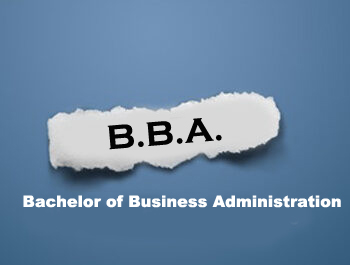Mon-Sat 9am-7pm








Management is one the most varied profession in the global economy with numerous opportunities ranging from consulting, entrepreneurship, human resource, general management, operation management to strategic planning. A person involved in the field looks in forecasting, planning, organizing, commanding, coordinating, and controlling the processes of the organization for effective internal as well as external functioning by managing people as well as resources.

The daily work of the manager is filled with one-on-one or group interactions focused on operations. Many managers use early mornings or later evenings to complete their reports, catch up on email, and update their task lists. There is never a dull moment, much less time for quiet contemplation, in the lives of most managers.
How to Pursue a Career in Management
|
Stream |
Graduation |
After Graduation |
After Post Graduation |
|
|
Path1 |
Clear Class XII in Any Stream |
Pursue Graduation in Any Discipline for 3-5 years |
Pursue PG Diploma in Management/ MBA for 2 years |
- |
|
Path2 |
Clear Class XII in Science Stream |
Pursue B.Tech/BE for 4 years |
Pursue PG Diploma in Management/ MBA for 2 years |
- |
|
Path3 |
Clear Class XII in Commerce Stream |
Pursue Graduation in BBA/BMS/B.Com for 3 years |
Pursue PG Diploma in Management/ MBA for 2 years |
- |
Important Facts
Premier colleges have eligibility criteria of minimum 50% aggregate marks in Class XII.
Leading Institutes
Top Management Institutes in India
|
College |
Location |
Website |
|---|---|---|
|
Indian Institute of Management - Ahmedabad |
Ahmedabad |
|
|
Indian School of Business -Hyderabad |
Hyderabad |
|
|
Indian Institute of Management - Bengaluru |
Bengaluru |
|
|
Indian Institute of Management - Kolkata |
Kolkata |
|
|
Indian Institute of Management - Lucknow |
Lucknow |
|
|
Xavier Labour Research Institute (XLRI) |
Jamshedpur |
|
|
Faculty of Management Studies - Delhi |
Delhi |
|
|
S.P. Jain Institute of Management and Research (SPJIMR) |
Mumbai |
|
|
Indian Institute of Management - Indore |
Indore |
|
|
Indian Institute of Management - Kozhikode |
Kozhikode |
|
|
TISS - Tata Institute of Social Sciences - Mumbai |
Mumbai |
|
|
Management Development Institute, Gurgaon (MDI) |
Gurgaon |
|
|
MICA - Mudra Institute of Communications Studies - Mumbai |
Ahmedabad |
|
|
Apeejay School of Management, Delhi (ASM) |
Delhi |
|
|
WLC College India, Bangalore |
Bangalore, Karnataka |
|
|
Narsee Monjee Institute of Management Studies - (NGA - SCE) |
Mumbai, Maharashtra |
Top Management Institutes in the World
|
Institution |
Location |
Website |
|---|---|---|
|
Northwest University |
USA |
|
|
Harvard Business School |
USA |
|
|
The Wharton School |
Pennsylvania |
|
|
INSEAD |
Singapore |
|
|
Stanford University |
USA |
|
|
London Business School |
UK |
Management Entrance Exams
Postgraduate
|
Institution |
Tentative Date |
Important Elements |
Website |
|---|---|---|---|
|
CAT |
Aug-Sept |
Quantitative Aptitude; Verbal & Reading comprehension; Data Interpretation & Logical Reasoning |
www.iimcat.ac.in/per/g01/pub/756/ASM/WebPortal/1/index.html?756@@1@@1 |
|
GMAT/GRE – Anytime over the year |
Jan |
Verbal Reasoning, Quantitative Reasoning and Analytical Writing |
|
|
XAT |
Aug-Nov |
Verbal and Logical Ability; Decision Making; Quantitative Ability & Data Interpretation; General Knowledge. Also includes Essay Writing as a part of the test. |
|
|
SPJET |
Oct-Dec |
Quantitative Aptitude; Verbal & Reading comprehension; Data Interpretation & Logical Reasoning |
|
|
TISS-NET |
Dec |
General Awareness, English Proficiency, Logical Reasoning |
|
|
MICAT I MICAT II |
End of Sep– Nov (for MICAT I) Jan (for MICAT II) |
MICAT – Psychometric, Verbal Ability, Quantitative Ability, General Awareness, Divergent-convergent Reasoning, Descriptive |
www.mica.ac.in/postgraduate-programme/selection-process-and-timelines |
|
AICET |
Aug– Dec |
Quantitative Ability, Communication Ability, Analytical Ability, General knowledge & Current affairs |
|
|
NMAT |
July– Oct |
Language skills, Quantitative skills, Logical reasoning |
Career Opportunities in Management
Interpersonal skills
Management jobs are all about people, and being able to build successful relationships is integral. If you want to lead a team, you'll need to earn the respect of your colleagues. To do this, you need to know how to effectively deal with other people.
Setting time aside to get to know your team members on both a personal and professional level, through social activities or team-building training, while still maintaining professional boundaries, will go a long way to earning their respect.
You need to demonstrate your managerial qualities and authority while maintaining the ability to play your part as a member of a team.
Communication and motivation
Effective leaders must master all forms of communication including written, verbal, and listening skills. As a team manager, you're the line of communication between frontline staff and senior management. You'll liaise with a variety of people, from entry-level employees to heads of departments and CEOs, in a number of different ways - via email and social media, over the phone, and in presentations, meetings, and one-to-ones.
You'll need to establish a trusting relationship with your employees so they feel comfortable sharing information with you, and vice versa. To ensure that lines of communication remain open, you'll need to make yourself readily available and accessible to your employees to discuss any issues or concerns that arise. Having an open-door policy or weekly or monthly team meetings should facilitate this. Let your staff know that they matter by maintaining eye contact, smiling, and listening attentively.
An open, positive attitude at work goes a long way to creating a healthy work environment. Don't shut yourself off or put yourself on a pedestal. Simple gestures, such as active encouragement, recognising achievements and taking an interest in the lives of your employees, ensure that staff feels valued. A positive workplace creates happy, motivated employees.
Organisation and delegation
As a manager you'll juggle multiple responsibilities, so excellent organisational skills are vital. You'll need to manage your own workload, oversee the work of other employees, attend meetings and training sessions, carry out appraisals, and review company policies. Sloppy working practices, tardiness, and a general lack of organisation won't be tolerated at this level and will set a bad example to your staff. Effective organisational skills reduce stress, save time and ensure that important deadlines are met.
Many managers ease their own busy workload by delegating tasks to colleagues. To do this effectively you need to analyse and identify the skills of your employees and assign duties to each depending on their skillset. Delegation isn't a sign of weakness, and can in fact multiply the amount of work that a manager can accomplish - while developing the team's confidence and skills.
Forward planning and strategic thinking
It's a manager's job to think of the bigger picture, so as well as focusing on today's tasks and responsibilities you'll also need to plan for the future. This means setting priorities in line with company goals, reviewing systems and policies, and attending training and managing the CPD activities of your team. As a strategic thinker, you'll encourage innovation and change in order to make your team and the organisation as a whole more productive and profitable.
Problem-solving and decision-making
You'll be tasked with spotting and solving problems on a daily basis in a managerial position. This requires outstanding attention to detail and the ability to remain calm under pressure. To ensure that your team is productive and that the workflow runs smoothly, you'll have to think on your feet when problems arise. Creative thinking will help you to come up with innovative solutions that minimise the impact on your team and the business as a whole.
Thinking on your feet also comes in useful when you have to make a snap decision about how to successfully complete a task or meet a business goal. Being able to quickly weigh up the pros and cons of a situation and make an informed decision is essential.
Commercial awareness
This skill is in huge demand among business employers. In fact, according to recruiters, commercial awareness is something that the majority of graduates lack.
If you want to progress to the management level, an understanding of the marketplace in which a business operates and what it is that makes a business successful is essential. To demonstrate this, you'll need to show that you:
Mentoring
As well as being business-focused decision-makers, managers also need to play a supportive role. If you've reached this senior-level you have a repertoire of experience, knowledge, and skills, and it's your job to pass this knowledge on and share your skills with other colleagues.
This involves training and advising staff and building their confidence and skills. In a management position, you'll be the driving force behind the progression of team members.
Call us at +91 9205084085, Monday - Friday, 9 am - 7 pm


